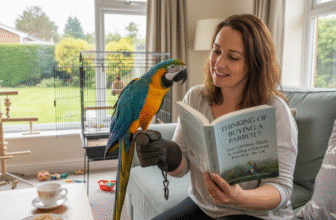
Your Ultimate Guide to Finding a Cat in the UK: Adoption vs. Buying Responsibly
The decision to bring a cat into your life is one of the most rewarding you can make. These enigmatic, affectionate, and endlessly entertaining creatures have a way of weaving themselves into the very fabric of our homes and hearts. But before you picture lazy Sunday mornings with a purring companion curled on your lap, there’s a crucial first step: finding the right cat for you. In the UK, this journey typically leads down one of two paths: adopting from a rescue centre or purchasing a kitten from a breeder. Both routes can lead to a wonderful friendship, but they are very different experiences with their own considerations, responsibilities, and joys.
This comprehensive guide is here to walk you through every aspect of welcoming a feline friend into your UK home. We’ll explore the heartfelt world of cat adoption, navigate the meticulous process of finding an ethical breeder, and break down the real costs and preparations involved. Our aim isn’t to tell you which path to take, but to empower you with the knowledge to make an informed, compassionate, and responsible choice that’s perfect for both you and your future furry family member.
The Heart of Adoption: Giving a Cat a Second Chance
Walk into any rescue centre in the country, and you’ll find cages filled with hopeful furry faces, each with a story to tell. Cat adoption is a profoundly fulfilling experience, offering a home to an animal that, for one reason or another, has found itself without one. The reasons are myriad – a change in family circumstances, an owner passing away, or simply being born a stray. These cats aren’t “broken”; they’re just in need of a little luck and a lot of love.

Why Choose Adoption?
The most compelling reason to adopt is simple: you are saving a life. Rescue centres across the UK are often at capacity, and by adopting, you not only give a home to one deserving cat but you also free up that space for another animal in desperate need. But the benefits don’t stop there.
- You Know What You’re Getting: With an adult cat, their personality is already fully formed. Shelter staff spend weeks, sometimes months, getting to know their charges. They can tell you if a cat is a playful extrovert, a quiet lap-cat, a confident explorer, or a shy soul who needs a peaceful home. This personality preview is invaluable in matching you with a compatible companion.
- It’s Cost-Effective: While adoption isn’t free, the fee is significantly lower than the price of a pedigree kitten. A typical adoption fee in the UK ranges from £80 to £150. This fee is exceptional value when you consider what’s usually included: the cat will already be neutered (or spayed), microchipped, vaccinated, and have received flea and worm treatment. These essential veterinary procedures would cost several hundred pounds if arranged privately.
- A World of Choice: Don’t assume rescues only have older moggies (though these ‘domestic shorthairs’ are wonderful pets!). You’ll find cats of all ages, from boisterous kittens to serene seniors. You’ll find long-haired fluffs, sleek short-hairs, and sometimes even purebred cats who have fallen on hard times.
Where to Adopt in the UK
The UK is blessed with a network of incredible animal welfare organisations. Your adoption journey will likely start with one of these:
- Cats Protection: The UK’s largest feline welfare charity, with a network of branches and adoption centres across the country. They are true specialists in all things cat.
- RSPCA (Royal Society for the Prevention of Cruelty to Animals): A giant in animal welfare, the RSPCA rescues and rehomes thousands of cats every year from situations of neglect and cruelty.
- Blue Cross: Another long-standing charity that provides veterinary care, behavioural support, and rehoming services for pets in need.
- Independent Local Rescues: Never underestimate the power of smaller, local charities. These are often run by passionate volunteers and can be a fantastic place to find a new friend. A quick search for “cat rescue near me” will reveal a host of local options.
The Adoption Process: What to Expect
Adopting a cat isn’t like buying an item off a shelf; the charity has a duty of care to ensure their cats go to safe, permanent homes. The process generally involves these steps:
- Enquiry: You’ll browse the charity’s website or visit the centre and express interest in a particular cat or in adopting in general.
- Application Form: You’ll fill out a detailed form about your home, your lifestyle, your family (including other pets), and your experience with cats. Be honest! This is all about making the right match.
- The Matchmaking Conversation: A staff member or volunteer will chat with you about the cat you’re interested in, or help you find one that suits your circumstances.
- Home Check: This sounds more intimidating than it is. Many charities now conduct this via video call. They simply want to see that your home is a safe and suitable environment for a cat. They might offer friendly advice on things like securing windows or ensuring garden safety.
- Adoption and Fee: Once approved, you’ll sign the adoption paperwork, pay the fee, and arrange a day to bring your new companion home.
The Path of a Purchaser: Finding an Ethical Breeder
For some, the appeal of a specific breed is undeniable. Perhaps you’ve fallen in love with the placid nature of the Ragdoll, the striking looks of a Bengal, or the gentle giant physique of the Maine Coon. Buying from a breeder is the most common way to acquire a pedigree kitten with a known lineage and predictable traits. However, this path carries a heavy weight of responsibility. The world of cat breeding has a dark side – kitten farms and irresponsible “backyard breeders” – and it is your duty as a buyer to avoid them at all costs.
What Defines an Ethical Breeder?
A good breeder is, first and foremost, a passionate hobbyist who loves their chosen breed. Their primary motivation is the betterment of the breed’s health, temperament, and conformation to breed standards, not profit. They will invest enormous amounts of time, money, and love into their cats and kittens.
Key signs of a responsible breeder include:
- They Specialise: They will typically focus on only one or two breeds.
- They are Registered: Their cats will be registered with a reputable governing body like the Governing Council of the Cat Fancy (GCCF) or The International Cat Association (TICA).
- Health is Paramount: They will openly discuss and provide proof of genetic health screening for diseases common to the breed (e.g., HCM in Ragdolls, PKD in Persians).
- They Ask You Questions: A good breeder will vet you as thoroughly as a rescue centre does. They want to ensure their precious kitten is going to a five-star, permanent home.
- They Offer Lifetime Support: They will be there to answer questions and offer advice for the entire life of the cat.
Navigating the Law: Understanding Lucy’s Law
In the UK, your single most important piece of legal knowledge is “Lucy’s Law,” which came into effect in England in 2020 (with similar legislation across Wales, Scotland, and Northern Ireland). This law makes it illegal for a third party to sell kittens and puppies. In simple terms, this means you must buy your kitten directly from the breeder, and you must see the kitten interacting with its biological mother in the environment where it was born. This law was designed specifically to clamp down on cruel puppy and kitten farms that rely on third-party dealers to hide the appalling conditions the parent animals are kept in.
If a seller offers to meet you in a car park or deliver a kitten to your home without you having first seen it with its mother at their property, you are dealing with an illegal and unethical seller. Walk away and report them to the local council and the RSPCA.
Red Flags: How to Spot a Bad Breeder or Kitten Farm
Protect yourself and the welfare of cats by watching out for these warning signs:
- They have lots of different breeds available.
- They won’t let you visit their home/cattery or see the mother cat.
- The kittens are offered for sale under 8 weeks old (reputable breeders often keep them until 12-14 weeks).
- They seem pushy, focused only on the money, and don’t ask you any questions.
- The kitten is not in a clean, social, home environment. It might be isolated in a pen or cage.
- There’s no paperwork – no registration, no vaccination card, no health screening results.
- The price is too good to be true. Bargain-basement prices for pedigree kittens are a massive red flag.
Counting the Cost: The Financial Reality of Cat Ownership
Whether you adopt or buy, the initial acquisition cost is just the beginning. A cat is a financial commitment for its entire life, which could be 15-20 years or more.
Initial Outlay
- Acquisition: £80-£150 adoption fee vs. £500-£2000+ for a pedigree kitten.
- Start-Up Kit: You’ll need food and water bowls, a litter tray and litter, a comfortable bed, a scratching post (essential!), a secure cat carrier, and some toys. Budget around £100-£200 for these initial supplies.
- Initial Vet Visit: Even if your cat comes vaccinated, a check-up with your own vet is a good idea. If you buy a kitten, you will need to pay for its primary vaccination course and microchipping.
Ongoing Monthly & Annual Costs
- Food: £20-£50+ per month, depending on the quality and type (wet, dry, or raw).
- Litter: £10-£25 per month.
- Flea and Worm Treatment: Around £15-£20 per month or £45-£60 quarterly.
- Pet Insurance: This is not a luxury; it’s an absolute essential. A vet bill for an accident or unexpected illness can easily run into the thousands. Budget £15-£40 per month for a good lifetime policy.
- Annual Health Check & Booster Vaccination: Approximately £50-£80 per year.
Preparing Your Home for Your New Arrival
Your home is about to become a cat’s kingdom. A little preparation will ensure the transition is smooth and safe for everyone.
Create a Safe Room
When you first bring your cat home, confine them to one quiet room for a few days. This room should contain their bed, food, water, and litter tray (kept as far apart as possible). This allows the cat to decompress and get used to the new smells and sounds of your home from a secure base. A spare bedroom or a quiet study is ideal.
Cat-Proofing Checklist
- Toxic Plants: Many common houseplants, like lilies, are extremely toxic to cats. Research your plants and remove any that are dangerous.
- Chemicals & Cleaners: Store all household chemicals securely out of reach.
- Cords & Wires: Tidy away electrical cords and blind pulls, as these can be a chewing or strangulation hazard.
- Windows & Balconies: Ensure windows have locks or restrictors to prevent falls, and that balconies are securely cat-proofed if the cat will have access.
- Small Items: Keep things like rubber bands, string, and hair ties tidied away as they can be dangerous if swallowed.
Conclusion: The Beginning of a Beautiful Friendship
The journey to finding your perfect feline companion is an exciting one, filled with anticipation. Whether you choose to open your heart to a rescue cat and give them the loving home they’ve been dreaming of, or you decide to seek out a healthy, well-socialised kitten from a truly ethical breeder, the key is to proceed with patience, diligence, and compassion. By doing your research, asking the right questions, and understanding the lifelong commitment you are about to make, you are setting the stage for an incredible relationship. The quiet companionship, the head boops, the playful pounces, and the comforting purr are all waiting for you. Choose responsibly, and you’ll be rewarded with one of life’s greatest treasures: the unconditional love of a cat.







